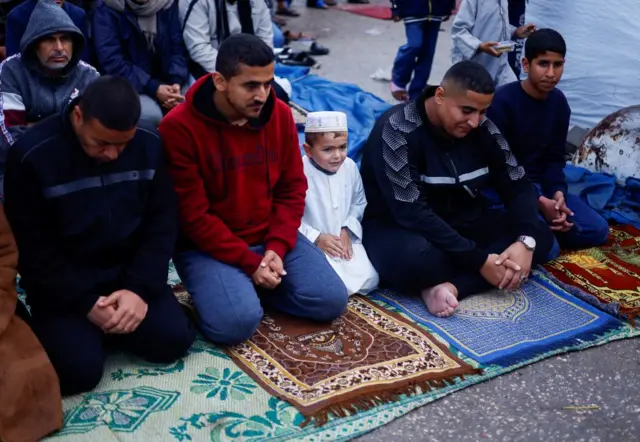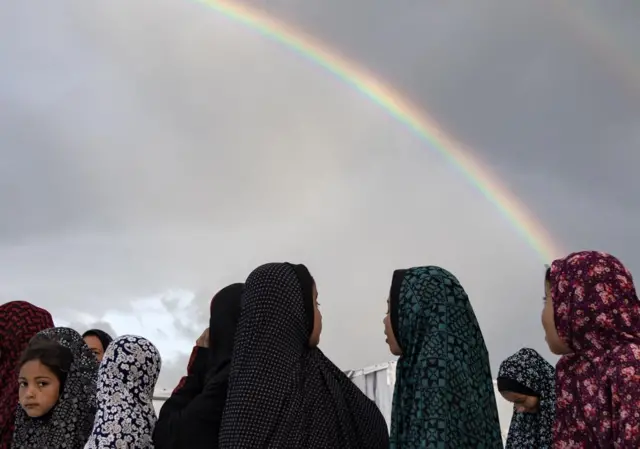
Mood of defiance to foreign pressure in Israelpublished at 09:24 BST 10 April 2024
 Jeremy Bowen
Jeremy Bowen
International Editor
There seems to be a mood of defiance in the Israeli government and Israel in general about the foreign pressure they are facing, and a feeling that, "they are all against us but we’ve got to do what we’ve got to do".
Israeli Prime Minister Benjamin Netanyahu has said, not about Biden, but about this pressure in general, that it is not necessarily to do with what Israel is doing in Gaza, but that it smacks of antisemitism.
It's also important to remember that, despite this American pressure on Netanyahu to negotiate a ceasefire, the US is continuing to supply Israel with arms.
And in addition to being under pressure from President Biden, Prime Minister Netanyahu is also under pressure from his own right-wing government coalition partners, who want no concessions and don’t really want to put more aid into Gaza.
What they really want is for him to continue with the operation and go into Rafah.



